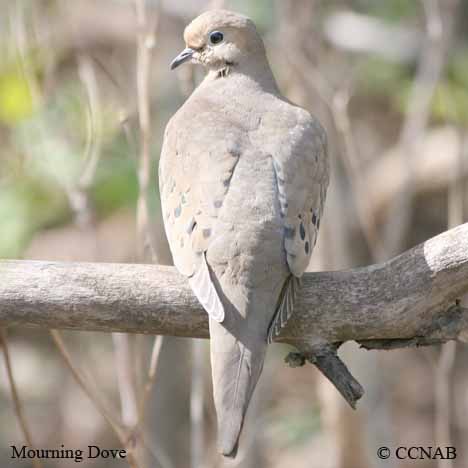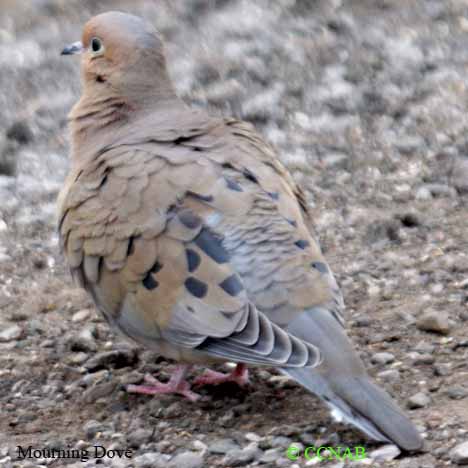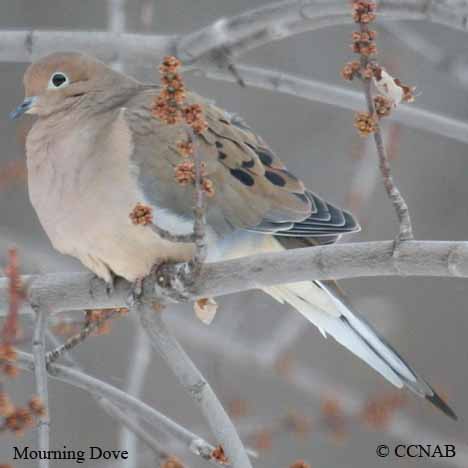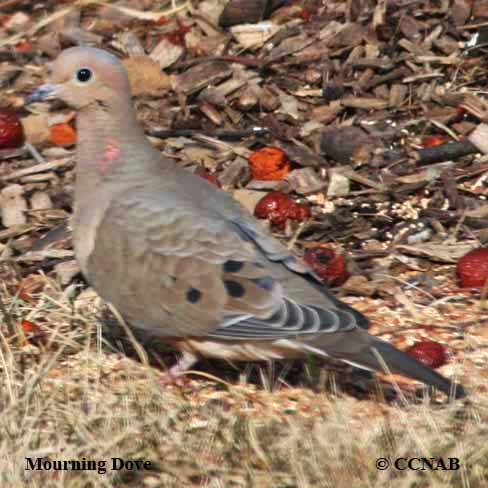North American Bird Search Box
This search box can be used to find bird species using bird's english, french or latin name, or to identify bird by its 4 letter Alpha Code
Field Guide for all the Birds of North America
Mourning Dove
4 Letter (english names) Alpha Code: MODO (1)
Tourterelle triste
Zenaida macroura
Information, images and range maps on over 1,000 birds of North America, including sub-species, vagrants, introduced birds and possibilities
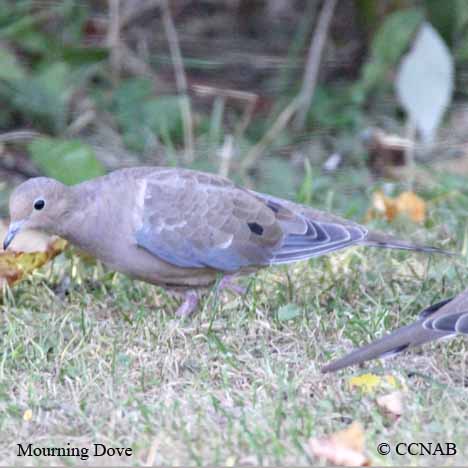
Species: The Mourning Dove (Zenaida macroura), is a commonly seen dove and is found on over two thirds of the North American continent. It is identified by its long pointy tail and wings and what appears to be a small head. This dove is a regular visitor to the backyard feeders and is seen feeding both on the ground under bird feeders or on platform feeders, where it has proper footing. It prefers open country and is not a forest bird. It is considered a gamebird in many US states. Even though it is harvested in the high millions every year, its population does not seem threatened. It is protected in other states and in Canada, preserved as a song bird.
Distinctions: Males and females are similar, with little apparent difference. The male has iridescent blue and pink showing on nape of neck, iridescent pink on side of neck, clear black lines located at the base of lower cheeks, blue orbital eye ring, individual black markings on coverts and tertials, white tips on the out tail feathers, darker primaries and secondaries, when seen in flight it has a light grey, buffy underbody, darker grayish brown upper body and red feet. The female is similar to male, iridescence not as evident. The juvenile appears scaly and has darker tones.
Voice: Males call throughout the seasons, vocal sounds like oowoo-woo-woo.
Nesting: Two to three white eggs, multiple broods per year, higher reproduction in southern regions. Nests are built in shrubs, hedges and trees using available materials, twigs and grasses.
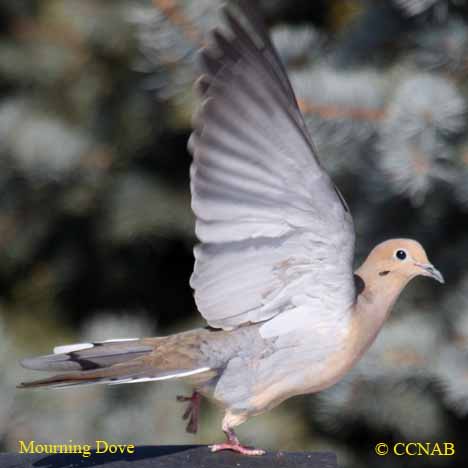
Life, Habitat and Pictures of North American Doves
| B L | W W | W | Family | Latin Name |
|---|---|---|---|---|
| 12" 30.5cm | 18" 45.7cm | 4.2oz 119.1g | Columbidae | Zenaida macroura |
North American Birds Videos
- Click here
- Click here - Breeding plumage
- Click here - Non-breeding plumage
- Click here
North American Bird Calls
- Ckick here
- Summer
- Year Around
- Winter
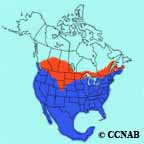
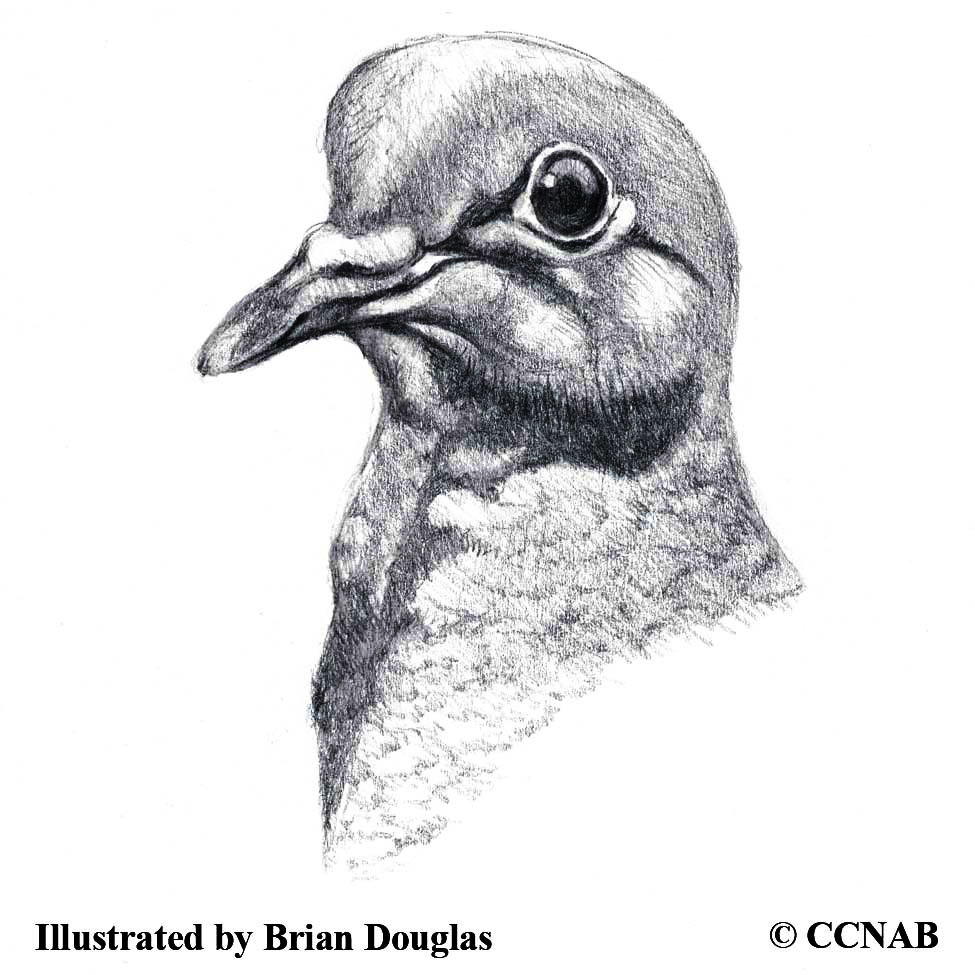
Distribution: Common summer breeders from Nova Scotia, west through all the southern regions of the Canadian provinces to British Columbia. Year-round breeder through most of the US states, except an area of the northern mid-west, from California to Florida, with an apparent like to the warmer climates. Seen throughout the Mexican landscapes, does prefer an open country setting, and many of the Caribbean islands.
Reference to Other Bird Site:
ABA - American Birding Association This site represents an organization that maintains official records of all birds species that have been proven to have been seen inside the perimeters of the North American Continent and the surrounding bodies of water. Regular revised versions are posted to keep the bird list current at all times. This is the list used by all serious birders over their lifetime. You may be aware of the movie called the "Big Year". It was with this list that all the competing birders used in an attempt to set a new record as to how many bird species that could be seen by an individual birder in one calendar year.
